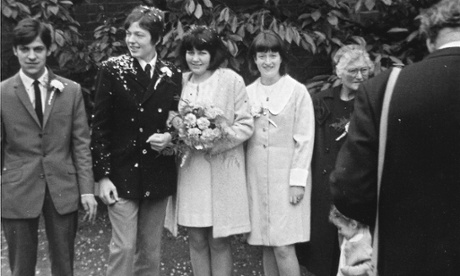
In theory, at least, Alan Johnson and Dennis Skinner have much in common. Both were born to impoverished working-class parents. Both found their way into politics via their trade union. But there the comparison ends. Although neither man has lost sight of his origins, they have turned out very differently both in character and in the political path they chose.
Johnson turned into an easygoing, self-deprecating centrist, effortlessly climbing the political ladder to the point where he eventually held five cabinet posts. Skinner became an uncompromising, unclubbable class warrior, unwilling to accept any political office beyond that directly bestowed by the people who elected him. Both their life stories are extraordinary in an age when the traditional working class are increasingly marginalised and politics increasingly the preserve of the middle and upper classes.
Mr Postman is the sequel to This Boy, Johnson’s wonderful and bestselling first volume of memoirs, in which he recounted his early years. The first volume ended with Johnson leaving school, aged 15, and starting work as a shelf-stacker in a supermarket. This volume sees our hero migrate from shelf-stacking to enrolling as a postman, first at the sorting office in Barnes, west London, and later in Slough. His real ambition is to become a pop star, an ambition thwarted when his instruments (uninsured, of course) are stolen.
His love life gets off to an unpromising start. At the age of 17 he marries a woman four years older than him who already has a child by another man. Against the odds, the marriage lasts more than 20 years and produces three well-adjusted children. Johnson is nothing if not a grafter, often working 12-hour shifts, six days a week. Along the way he finds time to educate himself, in addition to finding time for beer and bingo at weekends.
The postal workers’ strike of 1971 marks the formative moment in his political awakening. His political hero is Jimmy Reid who led the occupation of the Upper Clyde shipyard. Before long he has joined the local Labour party and been elected to the local committee of the Post Office Workers’ Union, becoming a delegate to the union’s annual conference where his talents were soon noticed by the union’s avuncular general secretary, Tom Jackson.
As with his earlier memoir, Johnson’s writing style is easy, relaxed, self-deprecating. His recall and eye for detail are impressive. The book is full of little pen portraits of former workmates he has not seen for decades and yet he is able to bring them effortlessly to life. The strength of this volume lies in its depiction of working-class life in the 1960s and 70s before market forces and the coming of Thatcher inflicted such damage on the social fabric. It was not a golden age – there was far too much booze, cigarettes and neglect of the home front – and he does not idealise. “I am conscious that this creates a fair impression of Andy Capp,” he writes in a flash of self-recognition. “I was perpetuating the male lifestyle adopted by my father, if not the excesses to which he took it.” Just in time, he steps back from the slippery slope. The rest, as they say, is history.
Dennis Skinner, like Alan Johnson, grew up in extreme poverty. Born in 1932 in Clay Cross, a Derbyshire pit town, he was one of nine children of a miner blacklisted for his union activities in the general strike. His formidable mother, Lucy, took in washing to make ends meet. Skinner was, however, born with one advantage over Johnson. He was the product of a large, strong family and his politics did not have to be learned from books. It was in his lifeblood. “My father’s blacklisting guaranteed we ate politics with our breakfast, dinner and tea.”
At the age of 10 Skinner won a scholarship to the local grammar school. Although he did well and could easily have gone on to university Skinner, to the dismay of his parents, opted to leave school and join his mates down the pit. In due course he was elected to the local council and, in 1970, to parliament. His dad’s advice, which he has followed to this day, was to treat the House of Commons as a place of work. “I don’t regard it as a cosy club where MPs, of all parties, gather to eat and drink together, to enjoy a comfortable life instead of representing those who put their trust in us through the ballot box.”
The core of the book, which would have benefited from tighter editing, is an account of Skinner’s 40 and more years fighting the class war in parliament. There is an amusing account of how he outwitted the great proceduralist, Enoch Powell, who was trying to put an end to stem cell research. There are poignant moments, too. Such as when, after his beloved mother had succumbed to dementia, he managed to bring her out of herself by singing her favourite songs. “I started with one of Gracie Fields’s songs, Sally… For half an hour, on the deserted Clay Cross Welfare ground, we sang to our hearts’ content… For those precious 30 minutes she was with me again.”
Skinner’s life, like Johnson’s, cried out to be recorded. In an era when politics has become increasingly bland and middle-class, there is marked shortage of working-class heroes. We will not see their like again.
Please Mr Postman is published by Bantam Press (£16.99). Click here to buy it for £13.59 with free UK p&p.
Sailing Close to the Wind is published by Quercus (£20). Click here to buy it for £16 with free UK p&p

